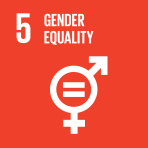Abstract
This paper is being released in the midst of the COVID-19 (coronavirus) pandemic. In addition to being a health crisis unlike any other in recent history, the pandemic is an economic and social crisis. Families—and women within them—are juggling an increase in unpaid care work as well as losses in income and paid work. Lone mothers, in particular, are acutely vulnerable, unable to share the care burden, and more likely to work for low pay and in vulnerable occupations. The restrictions put in place to combat COVID-19 also leave women and their families in precarious positions. Understanding the extent to which women’s participation in the labour market is linked to family structures is even more crucial in these uncertain times. This publication, drawing on a global dataset and new indicators developed by UN Women and the International Labour Organization, shows that women’s employment is shaped by domestic and caregiving responsibilities in ways that men’s is not. The data collected pre-COVID-19 provide insights into the distribution of domestic and caregiving responsibilities within various types of households—insights that are critical at this juncture when policies and programmes are being designed to respond to the pandemic’s economic fallout.
- 14 Oct 2020




